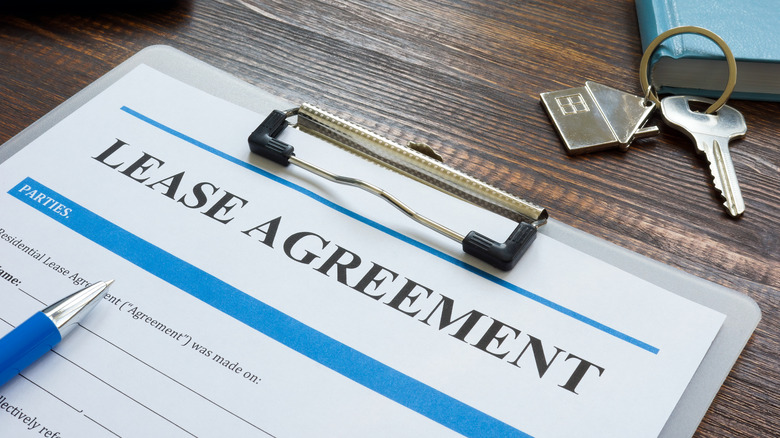How The Current Hike In Interest Rates Is Affecting Landlords
Whether you're thinking about buying a home to fix up and rent out yourself or you're a renter worried about impending increases in your monthly payment, it's important to consider the impact of the current economic state. The rising rate of inflation in the U.S. has spurred the Federal Reserve to increase key lending rates, the amount they charge to banks. As noted by the Washington Post, the Fed pushed rates higher and higher in 2022 and is likely to continue doing so in 2023, potentially past 5%.
That increase in interest is not only something that impacts banks; it trickles down to the rest of us because it forces the banks to increase the costs of borrowing. Whether you're on the investing side or the borrowing side, a tightening economy, an increase in unemployment, and a still-on-the-rise rate of inflation could make 2023 a financially difficult year for all. Though renters may be leery about what's to come at their next lease signing, landlords are not immune to the impact either. And for some landlords, the increase in interest rates could mean pulling out of the marketplace altogether.
Increasing costs make it difficult for landlords to hang on
As interest rates rise, landlords may find it difficult to maintain required insurance on their properties. That's because the commercial real estate loans typically used to finance these buildings will continue to become more expensive to insure. An article by The Wall Street Journal shares that about a third of commercial real estate is financed with floating rate mortgages, which means the interest rate can change over time. To compensate for that risk, lenders will often require a derivatives contract that ensures a cap on how high the interest can go up. Ultimately, these interest rate caps should minimize financial risks as interest continues to grow. The problem now is that cap's cost is rising.
The cost of this type of insurance was much easier to manage when interest rates were quite lower, and this made it possible for landlords to buy real estate with commercial loans. With those insurance contracts about to expire, coupled with the presence of ever-increasing interest rates, it's simply becoming too expensive for some landlords to remain in the business. For some, it eliminated any rental income generated from their properties. This problem could potentially lead to a significant selloff in the market, which may create a shakeup for renters in regard to their rental agreements. It could also greatly limit people who wish to become property investors.

